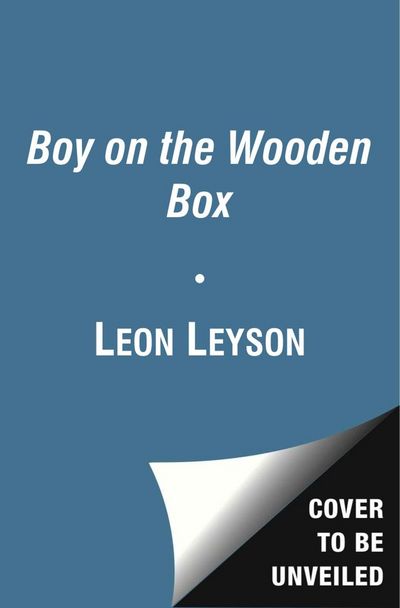
The Boy on the Wooden Box: How the Impossible Became Possible . . . on Schindler's List Hardcover - 2013
by Leyson, Leon
- Used
Description
Details
- Title The Boy on the Wooden Box: How the Impossible Became Possible . . . on Schindler's List
- Author Leyson, Leon
- Binding Hardcover
- Edition First Edition..
- Condition UsedGood
- Pages 240
- Volumes 1
- Language ENG
- Publisher Atheneum Books for Young Readers, New York
- Date 2013-08-27
- Illustrated Yes
- Features Dust Cover, Illustrated, Maps, Price on Product - Canadian
- Bookseller's Inventory # 581QQC000LP1_ns
- ISBN 9781442497818 / 1442497815
- Weight 0.67 lbs (0.30 kg)
- Dimensions 7.69 x 5.74 x 0.88 in (19.53 x 14.58 x 2.24 cm)
- Ages 10 to 14 years
- Grade levels 5 - 9
- Reading level 1000
-
Themes
- Chronological Period: 1940's
- Cultural Region: Polish
- Ethnic Orientation: Jewish
- Religious Orientation: Jewish
- Topical: Holocaust
- Library of Congress subjects World War, 1939-1945 - Jews - Rescue, Schindler, Oskar
- Library of Congress Catalog Number 2013017987
- Dewey Decimal Code B
About Bulk Book Warehouse New York, United States
All orders ship next business day!
Summary
Leon Leyson (born Leib Lezjon) was only ten years old when the Nazis invaded Poland and his family was forced to relocate to the Krakow ghetto. With incredible luck, perseverance, and grit, Leyson was able to survive the sadism of the Nazis, including that of the demonic Amon Goeth, commandant of Plaszow, the concentration camp outside Krakow. Ultimately, it was the generosity and cunning of one man, a man named Oskar Schindler, who saved Leon LeysonâÈçs life, and the lives of his mother, his father, and two of his four siblings, by adding their names to his list of workers in his factoryâÈ'a list that became world renowned: SchindlerâÈçs List.
This, the only memoir published by a former SchindlerâÈçs List child, perfectly captures the innocence of a small boy who goes through the unthinkable. Most notable is the lack of rancor, the lack of venom, and the abundance of dignity in Mr. LeysonâÈçs telling. The Boy on the Wooden Box is a legacy of hope, a memoir unlike anything youâÈçve ever read.
Media reviews
Citations
- Booklist, 09/01/2013, Page 65
- Horn Book Magazine, 11/01/2013, Page 117
- Hornbook Guide to Children, 01/01/2014, Page 0
- Kirkus Reviews, 08/01/2013, Page 0
- Publishers Weekly, 07/01/2013, Page 0
- School Library Journal, 11/01/2013, Page 133
- Voice of Youth Advocates, 10/01/2013, Page 0
